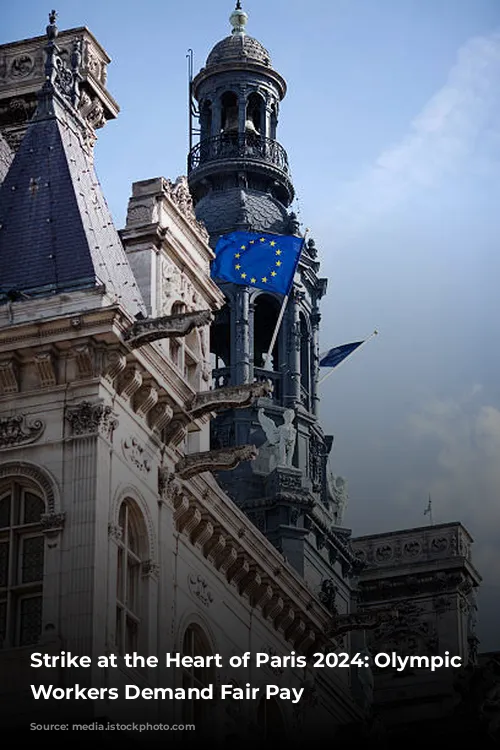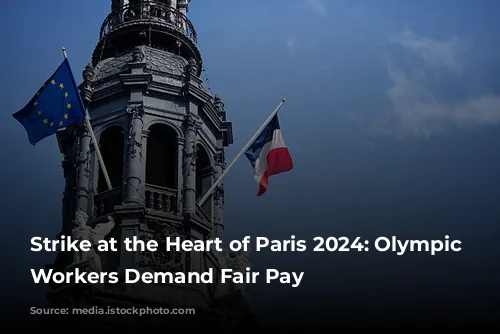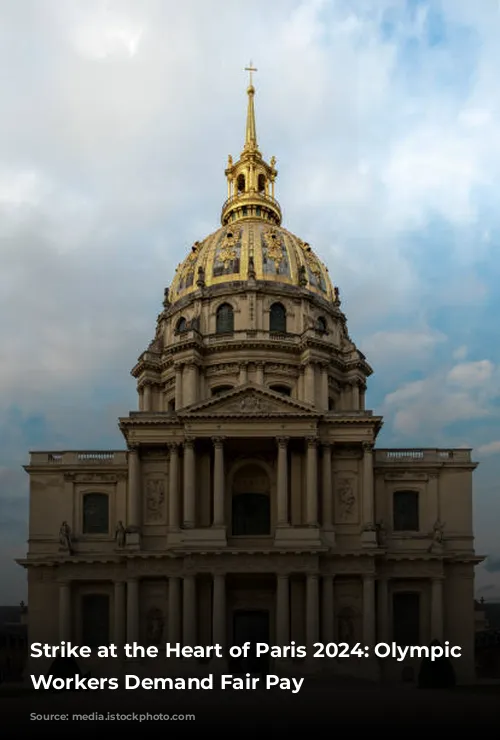The prestigious International Olympic Committee (IOC) found itself facing an embarrassing situation on Thursday morning when workers at the luxurious Hôtel du Collectionneur, where the IOC delegation is staying for the Paris 2024 Games, launched a strike. Their demand? A simple, yet crucial, one: a pay raise after seven long years.
The strike action, which began at 7 am and lasted for two hours, disrupted breakfast service at the five-star hotel. This disruption caused significant unease among IOC officials, who are expected to host numerous dinners and events at the venue. One such event was scheduled for the same evening, and concerns were raised about the potential for further strikes over the next two and a half weeks, potentially creating even more awkward scenarios.
Adding to the complexity of the situation, the IOC is believed to have paid a hefty £18.5 million for the exclusive use of the hotel during the Games.
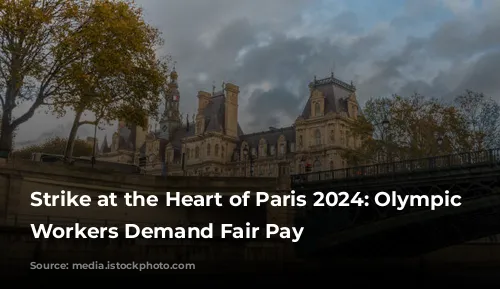
A Fight for Fairness: Workers Demand Recognition
The striking workers, represented by the trade union Union Départementale CGT Paris (UD CGT), made their voices heard loud and clear. They marched through the hotel corridors, waving union flags and holding signs with slogans like “Luxury hotel, poverty wages” and “Give us back our social assets.”
Their grievance? They have not received a pay rise since 2017. The UD CGT claims that despite a dividend of over £8 million being distributed to shareholders this year, the hotel has failed to improve the financial situation of its staff.
Negotiations between the hotel management and the union have been ongoing since June, with five meetings already held. However, the hotel’s latest offer of a 2% salary increase was rejected by the workers, ultimately triggering the strike.
The hotel appears to be the only luxury hotel in Paris that has not reached an agreement with its workers before the Olympics.
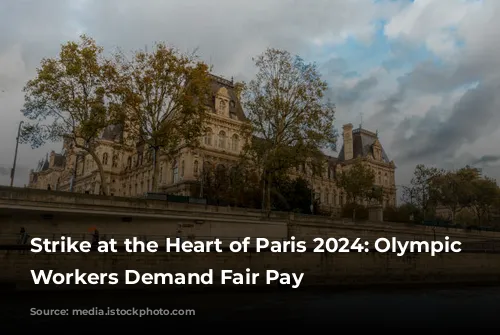
A 13th Month: More than Just a Bonus
At the heart of the workers’ demands lies the concept of a “13th month,” a common practice in France that involves an additional month’s salary being paid annually in December. While not mandatory, this “bonus” is considered standard in the high-end hotel sector.
The strikers argue that their demands represent a mere one-twentieth of the hotel’s contract with the IOC.
Interestingly, despite the strike, IOC guests and dignitaries were still able to move freely around the hotel.
The hotel management, however, remained optimistic, stating that negotiations were ongoing and progressing constructively. They emphasized their commitment to providing a unique experience for their guests.
While the IOC maintains that the issue does not directly affect their organization or the Games, the situation highlights the growing tension between luxury hotels and their workforce in the lead-up to the Paris 2024 Games.
